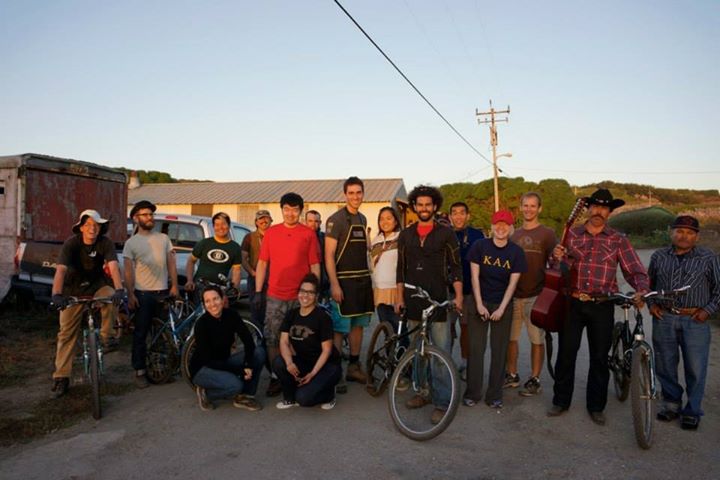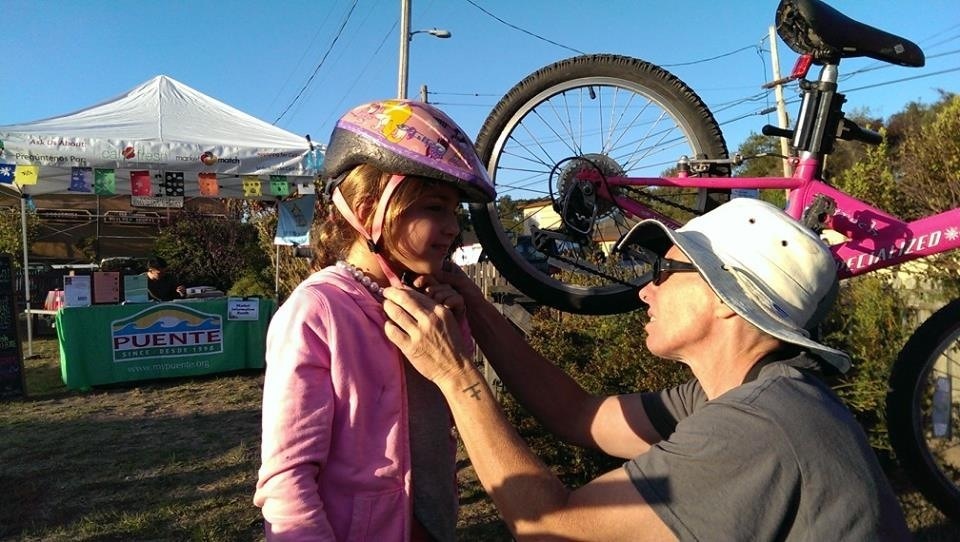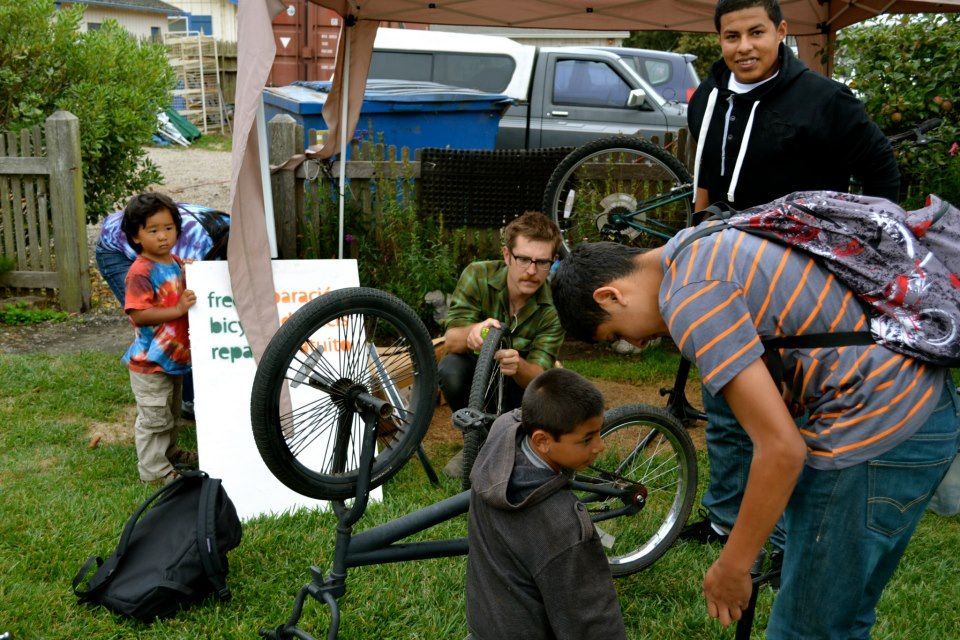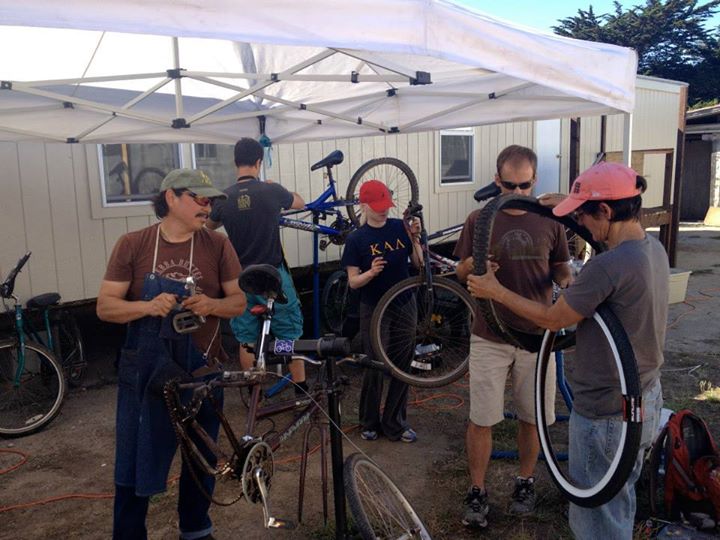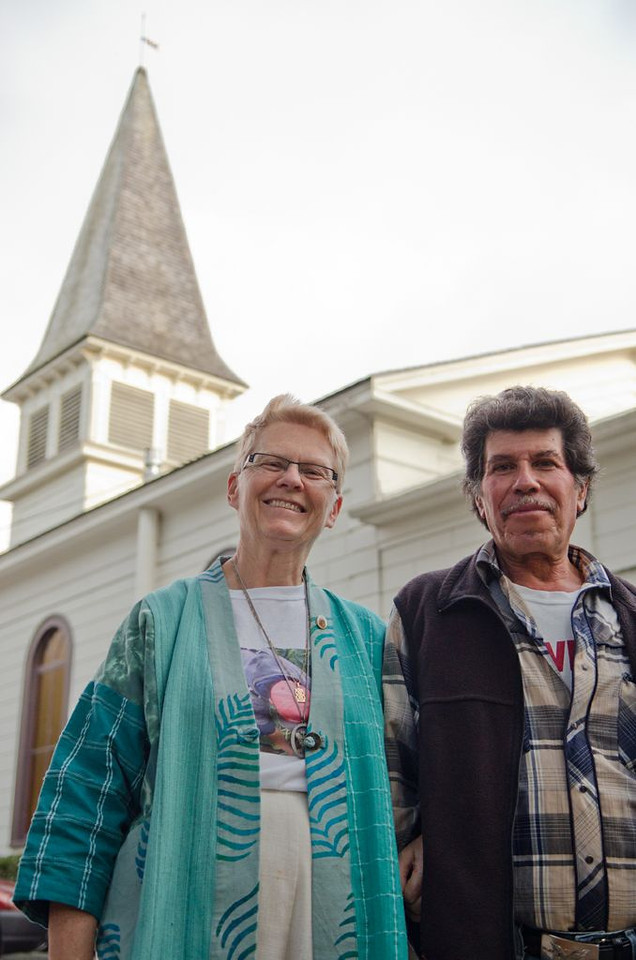For every child on the South Coast: training childcare providers
The South Coast is a children’s paradise, with beaches and marshes to explore, farm animals to visit, and fields to run through. Unfortunately, many infants and toddlers under the age of 3 have no idea about the beauty and outdoor fun that lies so close at hand. They may spend their days inside dim, claustrophobic farm worker housing.
Although providing early learning opportunities has been a priority for the South Coast for nearly two decades, efforts have been revitalized thanks to partnerships between Puente, the La Honda-Pescadero Unified School District, the Heising-Simons Foundation, and the Big Lift — a collective impact collaborative led by the three agencies – SVCF, the San Mateo County Office of Education, and the County of San Mateo County.
Three years ago, the La Honda-Pescadero Unified School District initiated a series of meetings to discuss how to address these problems, which go deeper than a lack of exposure to books or toys. Over several sessions with Puente staff and local leaders, a clear priority emerged: to fully engage caregivers and parents in children’s inner lives and brain development. Luckily, Pescadero’s caregivers are passionate, caring and enthusiastic about giving their young charges the best chance for success.
But many have no professional training in early childhood development or basic skills in how to interact with the children. So Puente stepped in to provide those trainings. With major support from the Heising-Simons Foundation and in partnership with the school district, Puente launched its Family Engagement Initiative in 2014 with a number of targeted programs to benefit home childcare providers, parents, and the children themselves. These programs make up a comprehensive plan drew on the momentum from the Early Childhood Learning Initiative.
This partnership and plan were critical to a successful effort resulting in the school district being awarded The Big Lift funding to support longer days and a longer year for the district’s preschool program. Last year, an expert with the San Mateo County Department of Education gave a 12-session workshop on early childhood development to 26 home care providers using curriculum from PITC, the Program for Infant-Toddler Care. Puente will offer another round of classes in the coming months, classes that are made possible because of funding by First 5 San Mateo County. Puente Family Engagement Project Manager Arlae Alston provides monthly check-ins for caregivers to ask questions and observe how she handles difficult situations, like a child with a temper tantrum.
Because the South Coast lacks a daycare center for children before they enter preschool, local women do the bulk of childcare for families who work full-time. Some of these local venues are not ideal for childcare: cramped houses, trailers and farm barracks with barely any room to crawl or play. Sometimes it’s not safe to play outside, so children remain indoors.
The years before preschool begins are a crucial period in a child’s early development: the time for self-expression, play, and contact with books and toys. But books and toys are not always at hand for all childcare providers, especially the kind that directly promote growth and curiosity. Recently Puente stepped in to provide a toy lending library and a book bag program for the area’s youngest children, along with home visits from a Puente specialist – weekly interactions to stimulate children’s play and interest, as well as guidance for childcare providers.
“Children should be raised in an environment of beauty and color. We want them to be able to dream and be surrounded by hope. You need to have those early memories be pleasant, meaningful memories. And you need to be able to express yourself as loudly as you wish, instead of having to be quiet because some men who worked late are sleeping in the room next door,” says Alston. Alston joined Puente full-time this summer, following an earlier stint as an early childhood development specialist, to help the community address the complex sources of the ‘readiness gap’ that begins as early as preschool.
When children arrive in preschool, they’re eager, energetic and ready to learn. But sometimes, the early deficits associated with lacking a proper environment for literacy and learning can set kids up for academic problems later on in areas like language and math. And those problems may become compounded over the course of a student’s academic career.
She has started visiting two local ranches with books in tow so she can read to the children, a program she dubs “story time on wheels.” “I’ve done it regularly enough that the children are waiting for me at the door. They are just hungry for knowledge, for information. We play with toys, we sing songs,” she says. Every at-home childcare provider now has a box of toys to keep. Puente and the school district have also turned their attention to local parents (including in-home caregivers) with Raising a Reader, a literacy program that teaches parents how to explore books with their children even if they themselves do not know how to read.
Raising a Reader sends children from preschool through second grade home with a colorful book bag that is filled with new books each week – picture books, reading books, numeracy books. Although LHPUSD has offered Raising a Reader in preschool for many years, the Initiative supported a more robust Raising a Reader with additional family nights.
This year, the district designated additional funding to expand the Raising a Reader Plus Family Nights to second graders and their families. Another key strategy is Abriendo Puertas (Opening Doors), a ten-part workshop that teaches parents how to support their children’s growth and education and empowers them to get involved in the local school district.
Local mother and at-home childcare worker Silvia Acosta has participated in every early child development workshop and program Puente offers, including the PITC sessions. She attends Raising a Reader with her 4-year-old daughter and graduated with the first Abriendo Puertas cohort last year. She helps Puente organize and distribute its book bags.
“I want to be a better mom. I want to do good for my children. And it’s important to continue to learn new things,” says Acosta, who asked that her name be changed because she is undocumented. Today, Acosta earns $50 a week caring for a neighbor’s 4-year-old in addition to her own. The parents drop off the child at 6:30 a.m. as they head to work and pick her up at 5:30 p.m.
She would love to take the children for a walk – just outside are fragrant rows of flowers, zucchini and pumpkins. But sometimes she can’t, because she doesn’t feel it is a safe environment. So they mostly stay inside, which can be difficult and confining.
Acosta dreams of becoming a teacher’s assistant or a professional, accredited childcare provider. She has already learned so much from her trainings with Puente: when to use a ‘time out’ to discipline a child and how long it ought to last. The reasoning behind letting a child climb a tree, since it helps them test their own strength. “I’m giving more of my time to the children now. Before, I didn’t read to them that much. I didn’t pay as much attention to them. Now I’m spending time playing with the children and talking to them,” she says.
Puente ultimately hopes to raise money to build a comprehensive licensed childcare center in Pescadero. A full-time daycare “would really help us,” affirms Acosta. “A lot of people leave to go to work at 6 a.m., so we need something that would take care of children all day.” Alston hopes women like Acosta can continue to empower themselves by finding work at a future childcare center while they further their own education.
It’s not just about babysitting. Puente and the school district want children to benefit from a formalized early education, staffed by professionals who are trained to notice learning deficits and speech delays.
“I want a safe place for children. Kids need spaces that encourage them to be creative, with people who know how to help them play and to learn a set curriculum,” says Rita Mancera, Deputy Executive Director of Puente. The more children learn by the time they enter preschool, the more we can expect from them. And that starts with a level playing field. Right now, the playing field is tilted away from families who can’t afford more than $15 a day for childcare.
“I’m always hearing about the ‘achievement gap’ and when I do, it’s like putting the blame on children and families. That’s not how I see it,” says Alston. “They’re not broken; they have not been given the same resources as others. But if we have a children’s center for them, they would have the same as everyone else.”
Please contact Rita Mancera at rmancera@mypuente.org or (650) 879-1691 Ext 102 to learn how you can help build a childcare center in Pescadero.
Rita Mancera
Rita Mancera Hernandez was born in Mexico City and grew up in the Mexican state of Baja California Sur. She comes from a small family that values education, hard work and family time. Her experience with non-profit organizations goes back all the way to her teen years.
Rita’s previous work with the YMCA of Mexico and the Latin American and Caribbean Alliance of YMCAs gave her a foundation for understanding the many challenges and strengths of North, Central and South America, an introduction to poverty, inequality and immigration, and a taste for the results of collaboration among agencies.
However, it has been her ten years of living in Pescadero and her relationships with local immigrant friends and neighbors (as well as with community leaders and mentors) that opened her eyes to a different implication of immigration. She has seen poverty right next door to wealth, injustice in labor practices and the challenges and opportunities of living in an isolated rural community such as the South Coast.
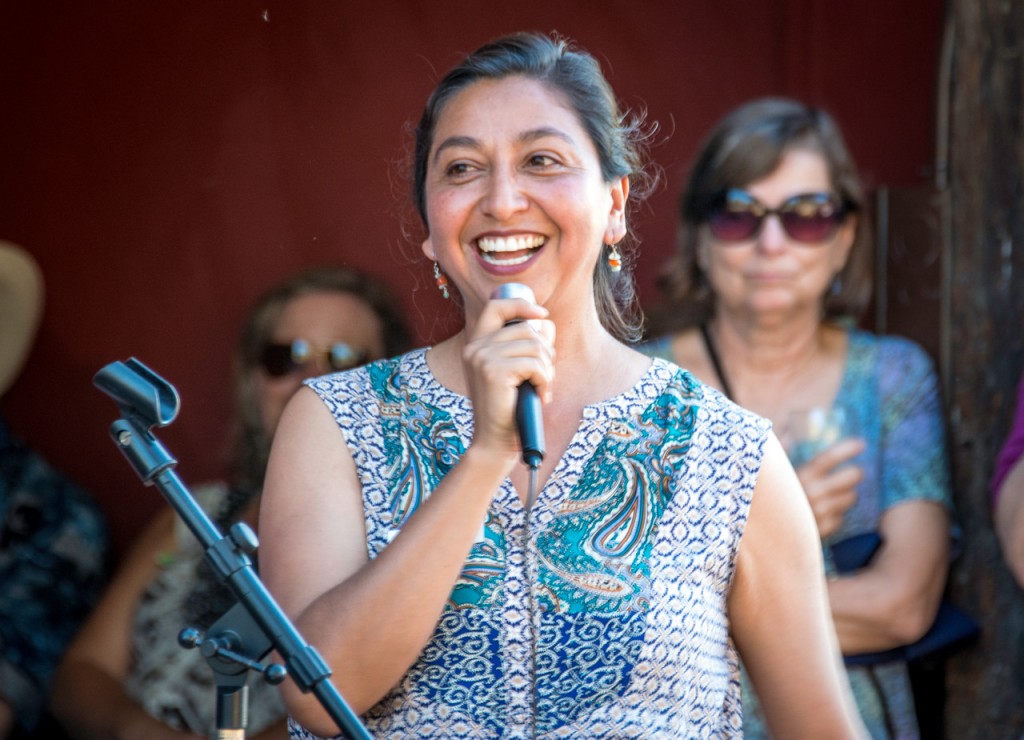
Rita Mancera at the 2015 Fall Harvest Celebration
Rita joined Puente in 2006 with responsibilities for home visiting families with children ages 0-5 to talk with parents about early childhood development. Later she became Puente’s Community Builder with the primary goal to create programs that would introduce the Latino and the Anglo community to each other. For four years she served as Puente’s Program Director overseeing a diversity of programs from immigration to physical activity to education and youth leadership. She is currently Puente’s Deputy Executive Director where she is responsible for integrating all aspects of Puente’s programs and activities, including grant writing, fundraising and budgeting.
Rita’s goals for the community are to continue closing the gap in education for children, youth and adults, increasing services so youth can succeed academically and personally in the 21th century, expanding the development of local leadership and supporting local individuals and families to move out and stay out of poverty.
Rita lives in Pescadero with her husband Jim and son William.

